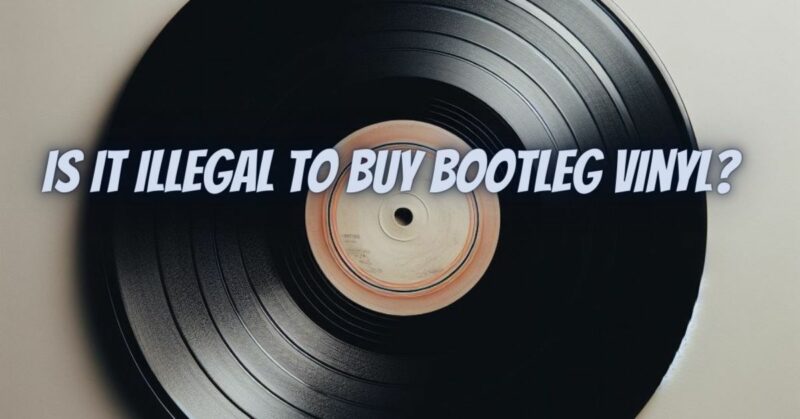The world of vinyl records has experienced a resurgence in recent years, with enthusiasts and collectors embracing the nostalgic charm of analog music. While the market for new and reissued vinyl records thrives, there remains a niche and somewhat controversial aspect of vinyl collecting – bootleg vinyl records. These unauthorized and often unofficial releases raise questions about their legality. In this article, we will explore the legal implications surrounding the purchase of bootleg vinyl records, shedding light on the complexities of this issue.
Understanding Bootleg Vinyl Records
Bootleg vinyl records, commonly referred to as “bootlegs” or “counterfeit records,” are unauthorized copies of commercially available or unreleased albums. These records are typically produced without the permission of the copyright holder, which is usually the artist, record label, or music publisher. Bootlegs can encompass a wide range of music genres, from rock and jazz to hip-hop and electronic music.
The Appeal of Bootleg Vinyl Records
Bootleg vinyl records hold a certain allure for collectors and music enthusiasts for several reasons:
- Rarity: Many bootlegs feature unreleased or live recordings that are not available through official channels, making them highly sought after by collectors looking for unique and rare content.
- Historical Significance: Bootlegs often capture moments in music history, such as live performances or alternative studio recordings, that may not have been documented otherwise.
- Artwork and Packaging: Some bootlegs feature impressive and creative artwork and packaging that can rival official releases in terms of design and aesthetics.
Legal Implications of Buying Bootleg Vinyl
The legality of buying bootleg vinyl records can vary depending on your jurisdiction and the specific circumstances surrounding the purchase. Here are some key considerations:
- Copyright Infringement: In most countries, producing, distributing, or purchasing bootleg vinyl records can constitute copyright infringement. Copyright law protects the rights of artists, record labels, and music publishers, granting them exclusive control over the reproduction and distribution of their works. Buying a bootleg record is effectively supporting copyright infringement.
- Enforcement Varies: Enforcement of copyright laws regarding bootleg vinyl records can vary significantly. In some cases, law enforcement may prioritize more serious copyright violations, while in others, it may take action against individuals or vendors involved in bootlegging.
- Digital vs. Analog: The legal landscape for bootleg vinyl records can be different from that of digital bootlegs, such as unauthorized digital downloads or streaming. Some jurisdictions may have stricter regulations for digital media.
- Fair Use and Public Domain: In some cases, bootleg recordings may be legally obtained if they fall under the fair use doctrine or if the music is in the public domain. However, these exceptions are limited and rare.
- Personal Use vs. Resale: Some countries allow individuals to buy bootleg vinyl records for personal use, but selling bootlegs commercially is almost universally illegal.
- Moral and Ethical Considerations: Even if purchasing bootleg vinyl records is not strictly illegal in your jurisdiction, it may raise moral and ethical questions. Supporting bootlegging can harm artists and the music industry as a whole, potentially depriving them of revenue and creative control.
The question of whether it is illegal to buy bootleg vinyl records is a complex and nuanced one. While the legal implications can vary by jurisdiction, the fundamental principle is that bootlegs typically infringe upon copyright laws. It’s essential for collectors and music enthusiasts to be aware of these legal complexities and consider the ethical implications when deciding whether to purchase bootleg vinyl records. In many cases, supporting official releases and respecting the rights of artists and copyright holders is the best way to ensure a thriving and sustainable music industry.

